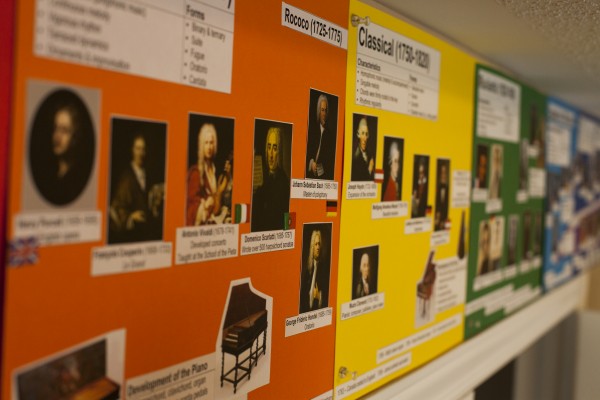My students just performed at a students-only performance class, and are now preparing for our upcoming recital. At recent lessons we have been discussing practice and memorization strategies. I keep threatening to make a video for my students of me practising. And I suspect that we are taxing the ears and patience of our fans at home because practising and performing sound quite different from each other.
Here’s the ugly truth: good practising sounds bad. What I mean by that, is that the work at home in the days leading up to a performance should not sound like polished performances repeated day after day. So what does good practising sound like?
Good practising sounds incomplete while we work on a specific section of a piece – one measure, one phrase, one section, or one page – often out of order, and jumping backwards and forwards through a piece.
Good practising sounds repetitious while we are trying to master a new skill. Often the goal is to play a small section correctly three times in a row. If you make a mistake on the second attempt, it’s back to zero and you begin the cycle again. Gaining control of dynamics may take five, six, seven attempts until we can consistently deliver the desired volume.
Good practising sounds too slow. Deliberate slow practise is one of the most effective tools we have. We can concentrate and play with 100% accuracy. To repeatedly play a section of piece with a stumble or hesitation is learning to play it that way forever.
Good practising sounds like one hand at a time. This is a useful strategy when a piece is new and we are figuring out notes, rhythm, and fingerings. Later, when the piece is further along, we will return to hands separate work to review rhythm and articulation. And ahead of a performance we will return to hands separate work to review our memory.
Good practising sounds silent. When we are comparing sections or memorizing away from the piano the room gets quiet. And sometimes we listen to recordings of other performers to get some artistic ideas.
Good practising sounds like someone talking to his/herself. When I have one of those “eureka” moments, it is often accompanied by “ooooh” or “aha!”. And there’s a fair bit of muttering when things aren’t going as well as I’d hoped.
Please come to the recital. We’ll have it all put together and give you a great show.




[…] of each practice session and setting a daily goal for what they intend to accomplish. [Read this post about what good practising sounds […]